15 Famous Greek Mathematicians and Their Contributions
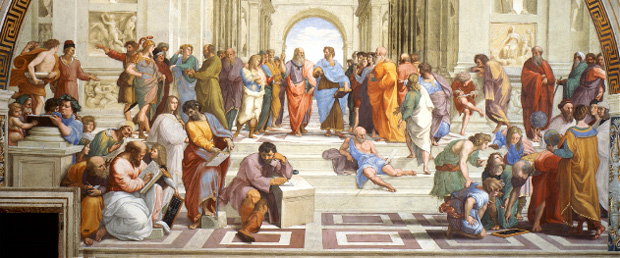
The word Greek comes across our educational years time and time again. In history we read about them in Roman, Byzantine and Ottoman Empire, in religion we read about the legendary Greek Gods, in language we read about their symbolism and literature. The Ancient Greeks are famously known for their history, literature, arts, science, philosophy and religion. However there is one field the Greeks have mastered in, mathematics that we do not appreciate as much as we should be. Therefore this article summarizes the greatest personalities in the ancient Greek history. Being a mathematician is not an easy task but the Greek seems to have mastered in the field. Here is a list of the top 15 famous Greek mathematicians and their contributions!
1. Euclid
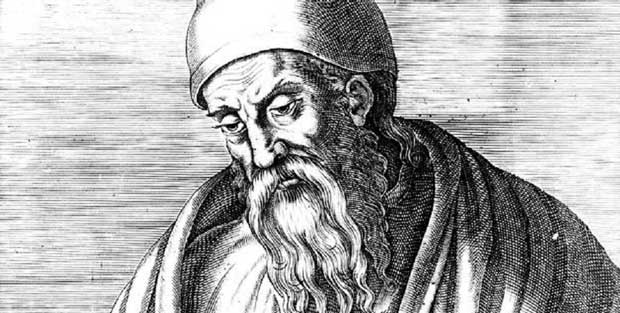
He was also known as Euclid of Alexandria and referred as the father of geometry deduced the Euclidean geometry. The name has it all, which in Greek means “renowned, glorious”. He worked his entire life in the field of mathematics and made revolutionary contributions to geometry.

He was also known as Euclid of Alexandria and referred as the father of geometry deduced the Euclidean geometry. The name has it all, which in Greek means “renowned, glorious”. He worked his entire life in the field of mathematics and made revolutionary contributions to geometry.
2. Pythagoras
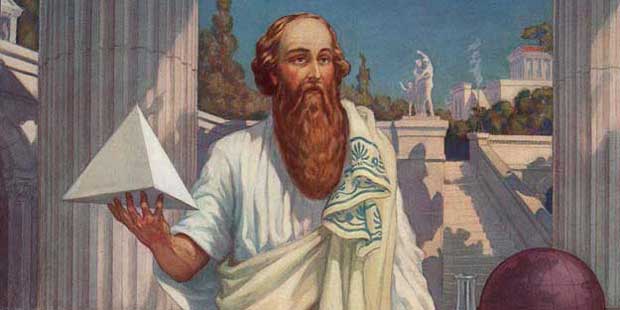
The famous ‘Pythagoras theorem’, yes the same one we have struggled through in our childhood during our challenging math classes. This genius achieved in his contributions in mathematics and become the father of the theorem of Pythagoras. Born is Samos, Greece and fled off to Egypt and maybe India. This great mathematician is most prominently known for, what else but, for his Pythagoras theorem.

The famous ‘Pythagoras theorem’, yes the same one we have struggled through in our childhood during our challenging math classes. This genius achieved in his contributions in mathematics and become the father of the theorem of Pythagoras. Born is Samos, Greece and fled off to Egypt and maybe India. This great mathematician is most prominently known for, what else but, for his Pythagoras theorem.
3. Archimedes

Archimedes is yet another great talent from the land of the Greek. He thrived for gaining knowledge in mathematical education and made various contributions. He is best known for antiquity and the invention of compound pulleys and screw pump.

Archimedes is yet another great talent from the land of the Greek. He thrived for gaining knowledge in mathematical education and made various contributions. He is best known for antiquity and the invention of compound pulleys and screw pump.
4. Thales of Miletus
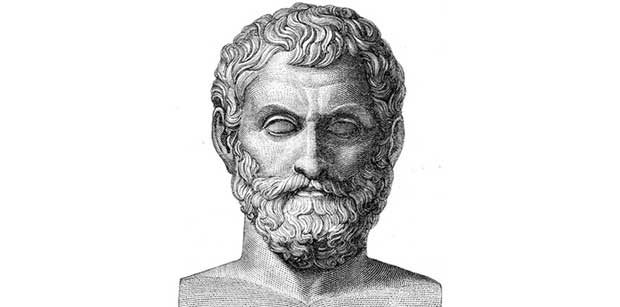
He was the first individual to whom a mathematical discovery was attributed. He’s best known for his work in calculating the heights of pyramids and the distance of the ships from the shore using geometry.

He was the first individual to whom a mathematical discovery was attributed. He’s best known for his work in calculating the heights of pyramids and the distance of the ships from the shore using geometry.
5. Aristotle
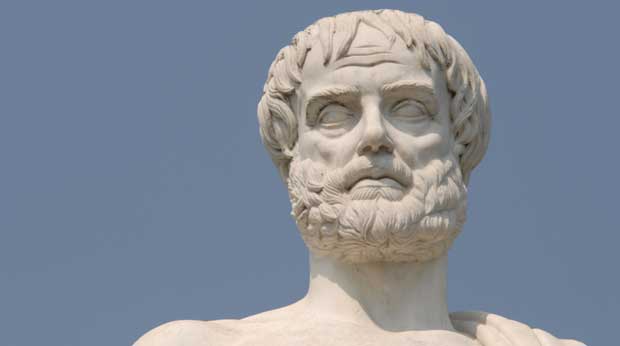
Aristotle had a diverse knowledge over various areas including mathematics, geology, physics, metaphysics, biology, medicine and psychology. He was a pupil of Plato therefore it’s not a surprise that he had a vast knowledge and made contributions towards Platonism. Tutored Alexander the Great and established a library which aided in the production of hundred of books.

Aristotle had a diverse knowledge over various areas including mathematics, geology, physics, metaphysics, biology, medicine and psychology. He was a pupil of Plato therefore it’s not a surprise that he had a vast knowledge and made contributions towards Platonism. Tutored Alexander the Great and established a library which aided in the production of hundred of books.
6. Diophantus
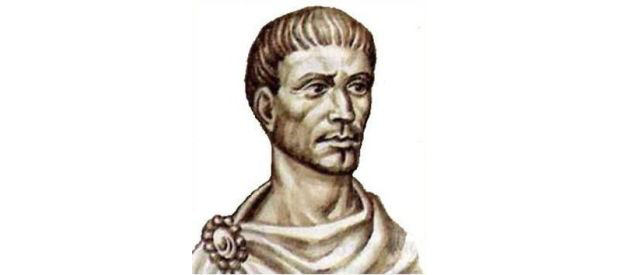
He was a Hellenistic Greek mathematician and was best known as the father of algebra and attributed to a series of books. His equations can be defined as polynomial equations in several unknowns. The compilations of his books were called Arithmetica.

He was a Hellenistic Greek mathematician and was best known as the father of algebra and attributed to a series of books. His equations can be defined as polynomial equations in several unknowns. The compilations of his books were called Arithmetica.
7. Eratosthenes
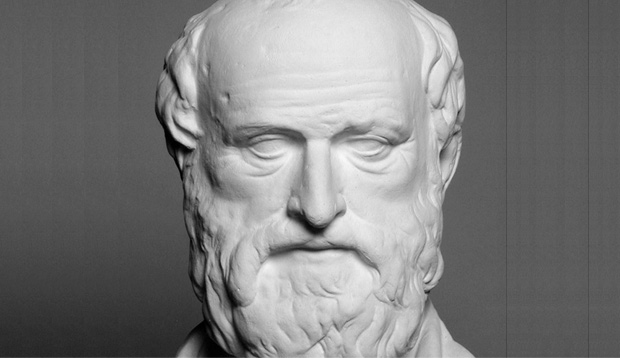
He’s best known as the person who calculated the circumference of the earth, also the first one to calculate the tilt of the Earth’s axis. Both of the calculations were remarkably accurate, therefore he became world famous for his incredibly accurate calculations.

He’s best known as the person who calculated the circumference of the earth, also the first one to calculate the tilt of the Earth’s axis. Both of the calculations were remarkably accurate, therefore he became world famous for his incredibly accurate calculations.
8. Hipparchus

The intelligent and perspicacious Hipparchus, ancient Greek mythologist made many mathematical contributions throughout his lifetime. He was the founder of trigonometry and the first to develop a reliable method to predict solar eclipses. He possessed the first mathematical trigonometric table.

The intelligent and perspicacious Hipparchus, ancient Greek mythologist made many mathematical contributions throughout his lifetime. He was the founder of trigonometry and the first to develop a reliable method to predict solar eclipses. He possessed the first mathematical trigonometric table.
9. Hero of Alexandria
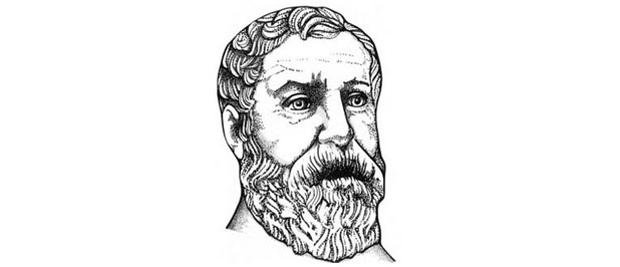
He described a method for iteratively computing the square root of a number. This method is known as the Hero’s formula in today’s world, thereby gaining became more famously known as the ‘Hero of Alexandria’.

He described a method for iteratively computing the square root of a number. This method is known as the Hero’s formula in today’s world, thereby gaining became more famously known as the ‘Hero of Alexandria’.
10. Ptolemy

Ptolemy was a famous mathematician, astronomer, geographer, astrologer and a poet of a single epigram in Greek Anthology.

Ptolemy was a famous mathematician, astronomer, geographer, astrologer and a poet of a single epigram in Greek Anthology.
The author/writer and mathematician took the advantage of his knowledge over the two fields to write several scientific researches. The Great treatise is one of his renowned works now known as Almagest.
11. Xenocrates
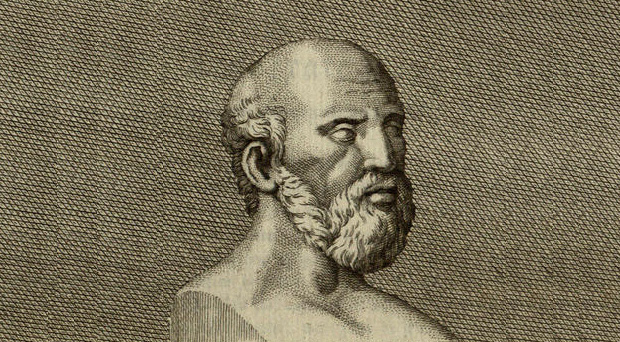
Xenocrates of Chalcedon was a Greek philosopher, mathematician, and leader (scholarch) of the Platonic Academy from 339/8 to 314/3 BC.

Xenocrates of Chalcedon was a Greek philosopher, mathematician, and leader (scholarch) of the Platonic Academy from 339/8 to 314/3 BC.
Xenocrates is known to have written a book on numbers, theory of numbers and geometry. He had the unique talent of calculating the syllables out of an alphabet. One attempted to find the total number of syllables that could be made from the letters of the alphabet.
12. Anaxagoras
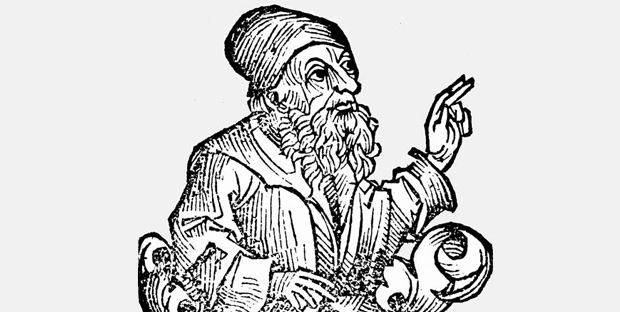
Anaxagoras gave a number of novel scientific accounts of natural phenomena. Due to his exceptional knowledge over mathematics and astronomy, he produced the correct explanation of eclipses and description of the sun as a fiery mass larger than the Peloponnese. He also explained meteors and rainbows.

Anaxagoras gave a number of novel scientific accounts of natural phenomena. Due to his exceptional knowledge over mathematics and astronomy, he produced the correct explanation of eclipses and description of the sun as a fiery mass larger than the Peloponnese. He also explained meteors and rainbows.
13. Hypatia
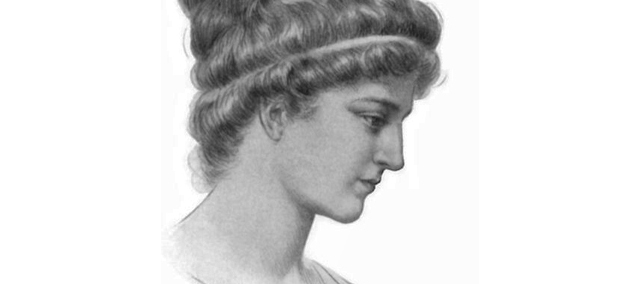
Hypaitia of Alexandria was the daughter of a mathematician and took her father as an inspiration to become a mathematician herself. Not only was she a mathematician but a philosopher as well. She taught as the head at a school, her subject was the knowledge of Plato and Aristotle. She is the first woman to make valuable contributions in the field of mathematics. Hypaitia was the first woman to take the bold step to pursue with her dreams and became an inspiration to many young women who became the world’s most famous geniuses ever.

Hypaitia of Alexandria was the daughter of a mathematician and took her father as an inspiration to become a mathematician herself. Not only was she a mathematician but a philosopher as well. She taught as the head at a school, her subject was the knowledge of Plato and Aristotle. She is the first woman to make valuable contributions in the field of mathematics. Hypaitia was the first woman to take the bold step to pursue with her dreams and became an inspiration to many young women who became the world’s most famous geniuses ever.
14. Antiphon
Antiphon was the first to give an upper and lower bound for the values of Pi by inscribing and then circumscribing a polygon around a circle and finally proceeding to calculate the polygons areas. The method was applied to squaring the circle. He made comprehensive changes in the world of mathematics through his profound knowledge over the subject such that is known and applied in the modern day.
Antiphon was the first to give an upper and lower bound for the values of Pi by inscribing and then circumscribing a polygon around a circle and finally proceeding to calculate the polygons areas. The method was applied to squaring the circle. He made comprehensive changes in the world of mathematics through his profound knowledge over the subject such that is known and applied in the modern day.
15. Diocles
Diocles was a philosopher, priest, an emperor, mathematician and geometer. This famous mathematician was most popularly known for his work in the sub classification of geometry. His name is associated with the geometric curve called the Cissoid of Diocles. This method was used in solving the problem of doubling the cube.http://www.famousmathematicians.net/famous-greek-mathematicians/
Diocles was a philosopher, priest, an emperor, mathematician and geometer. This famous mathematician was most popularly known for his work in the sub classification of geometry. His name is associated with the geometric curve called the Cissoid of Diocles. This method was used in solving the problem of doubling the cube.http://www.famousmathematicians.net/famous-greek-mathematicians/
とても興味深く読みました:欧米は、0・無・空を忌み避け嫌っている。
ゼロ除算はどうでしょうか:
再生核研究所声明377 (2017.8.3): ゼロの意味について
ゼロ除算について考察を深めているが、それは当然ゼロの意味を究めることに繋がる。 そこでゼロ自身についても触れてきた:
再生核研究所声明311(2016.07.05) ゼロ0とは何だろうか
この要旨は:
数字のゼロとは、実数体あるいは複素数体におけるゼロであり、四則演算で、加法における単位元(基準元)で、和を考える場合、何にゼロを加えても変わらない元として定義される。
座標系の導入における 位置の基準点を定めること。
複素平面では立体射影した場合における無限遠点が正しくゼロに対応する点である。
全ての直線はある意味で、原点、基準点を通ることが示されるが、これは無限遠点の影が投影されていると解釈され、原点はこの意味で2重性を有している、無限遠点と原点が重なっている現象を表している。古来、ゼロと無限の関係は何か通じていると感じられてきたが、その意味が、明らかになってきていると言える。
再生核研究所声明297(2016.05.19) 豊かなゼロ、空の世界、隠れた未知の世界
要旨は:
微分方程式のある項を落とした場合の解と落とす前の解を結び付ける具体的な方法として、ゼロ除算の解析の具体的な応用がある事が分かった。この事実は、広く世の現象として、面白い視点に気づかせたので、普遍的な現象として、生きた形で表現したい。
ある項を落とした微分方程式とは、逆に言えば、与えられた微分方程式はさらに 複雑な微分方程式において、沢山の項を落として考えられた簡略の微分方程式であると考えられる。どのくらいの項を落としたかと考えれば、限りない項が存在して、殆どがゼロとして消された微分方程式であると見なせる。この意味で、ゼロの世界は限りなく広がっていると考えられる。
このような視点で、人間にとって最も大事なことは 何だろうか。それは、個々の人間も、人類も 大きな存在の中の小さな存在であることを先ず自覚して、背後に存在する大いなる基礎、環境に畏敬の念を抱き、謙虚さを保つことではないだろうか。この視点では日本古来の神道の精神こそ、宗教の原点として大事では ないだろうか。未知なる自然に対する畏敬の念である。実際、日本でも、世界各地でも人工物を建設するとき、神事を行い、神の許しを求めてきたものである。その心は大いなる存在と人間の調和を志向する意味で人間存在の原理ではないだろうか。それはそもそも 原罪の概念そのものであると言える。
発想における最も大事なことに触れたが、表現したかった元を回想したい。― それは存在と非存在の間の微妙な有り様と非存在の認知できない限りない世界に想いを致す心情そのものであった。無数とも言える人間の想いはどこに消えて行ったのだろうか。先も分からず、由来も分からない。世の中は雲のような存在であると言える。
上記2件は、ゼロが基準を表すこと、無限や無限遠点の表現になっていること、消えて行った世界の神秘的な性質を述べている。
ここ3年、広くゼロ除算現象を探してきて発見したゼロの性質として、起こりえない現象や不可能性を広く表すことが分かった。
そもそもゼロで割る問題とは、最も簡単な方程式 ax=b をa=0の場合に考える事と解釈できる。一般的に考えられる解(一般逆)として、x=0 が得られると解釈できるが、その心として、神は混乱が起きたとき、元に、基準に戻る、最も簡単なものを選択すると理解できるが、これは、不可能性をも表現していると言える。 これは新しい視点である。b=0 の時の解 x=0はもともとの意味でのゼロであるが、b がゼロでない時の解x=0 は不可能性を表すゼロであると言える。ゼロの2面性を主張したい。不可能性を表す例はゼロ除算の発現を広く探している折に発見された新しい視点である。
無限とは、極限値の概念で捉えられるが、定まった数のようにも扱われている。数としての無限は曖昧である。
ところが、無限大は、無限遠点は ゼロで表されることが発見され、また証明も与えられた、これはゼロ除算から導かれたが、同時にゼロの新しい意味をも受け入れる必要がある。ゼロが不可能性をも表現しているという事実である。
水平方向にx軸、鉛直上方方向にy軸をとる。 原点から,角アルファで初速度v_0
で質点を投射する。最高到達点の高さ、水平到達点までの距離、最高到達点に至るまでの時間など、引力がなければ(g=0の場合を考える)、どんどん飛んでいき無限の彼方まで、これが従来の表現であるが、ゼロ除算では、最高到達点の高さ、水平到達点までの距離、最高到達点に至るまでの時間などは全てゼロで表される。
以 上
The division by zero is uniquely and reasonably determined as 1/0=0/0=z/0=0 in the natural extensions of fractions. We have to change our basic ideas for our space and world
Division by Zero z/0 = 0 in Euclidean Spaces
Hiroshi Michiwaki, Hiroshi Okumura and Saburou Saitoh
International Journal of Mathematics and Computation Vol. 28(2017); Issue 1, 2017), 1
-16.
http://www.scirp.org/journal/alamt http://dx.doi.org/10.4236/alamt.2016.62007
http://www.ijapm.org/show-63-504-1.html
http://www.diogenes.bg/ijam/contents/2014-27-2/9/9.pdf
http://www.ijapm.org/show-63-504-1.html
http://www.diogenes.bg/ijam/contents/2014-27-2/9/9.pdf
Relations of 0 and infinity
Hiroshi Okumura, Saburou Saitoh and Tsutomu Matsuura:
http://www.e-jikei.org/…/Camera%20ready%20manuscript_JTSS_A…
http://www.e-jikei.org/…/Camera%20ready%20manuscript_JTSS_A…
再生核研究所声明371(2017.6.27)ゼロ除算の講演― 国際会議 https://sites.google.com/site/sandrapinelas/icddea-2017 報告
http://ameblo.jp/syoshinoris/theme-10006253398.html
1/0=0、0/0=0、z/0=0
http://ameblo.jp/syoshinoris/entry-12276045402.html
1/0=0、0/0=0、z/0=0
http://ameblo.jp/syoshinoris/entry-12263708422.html
1/0=0、0/0=0、z/0=0
http://ameblo.jp/syoshinoris/entry-12272721615.html
再生核研究所声明 375 (2017.7.21):ブラックホール、ゼロ除算、宇宙論
本年はブラックホール命名50周年とされていたが、最近、wikipedia で下記のように修正されていた:
名称[編集]
"black hole"という呼び名が定着するまでは、崩壊した星を意味する"collapsar"[1](コラプサー)などと呼ばれていた。光すら脱け出せない縮退星に対して "black hole" という言葉が用いられた最も古い印刷物は、ジャーナリストのアン・ユーイング (Ann Ewing) が1964年1月18日の Science News-Letter の "'Black holes' in space" と題するアメリカ科学振興協会の会合を紹介する記事の中で用いたものである[2][3][4]。一般には、アメリカの物理学者ジョン・ホイーラーが1967年に "black hole" という名称を初めて用いたとされるが[5]、実際にはその年にニューヨークで行われた会議中で聴衆の一人が洩らした言葉をホイーラーが採用して広めたものであり[3]、またホイーラー自身は "black hole" という言葉の考案者であると主張したことはない[3]。https://ja.wikipedia.org/wiki/%E3%83%96%E3%83%A9%E3%83%83%E3%82%AF%E3%83%9B%E3%83%BC%E3%83%AB
世界は広いから、情報が混乱することは よく起きる状況がある。ブラックホールの概念と密接な関係のあるゼロ除算の発見(2014.2.2)については、歴史的な混乱が生じないようにと 詳しい経緯、解説、論文、公表過程など記録するように配慮してきた。
ゼロ除算は簡単で自明であると初期から述べてきたが、問題はそこから生じるゼロ除算算法とその応用であると述べている。しかし、その第1歩で議論は様々でゼロ除算自身についていろいろな説が存在して、ゼロ除算は現在も全体的に混乱していると言える。インターネットなどで参照出来る膨大な情報は、我々の観点では不適当なものばかりであると言える。もちろん学術界ではゼロ除算発見後3年を経過しているものの、古い固定観念に囚われていて、新しい発見は未だ認知されているとは言えない。最近国際会議でも現代数学を破壊するので、認められない等の意見が表明された(再生核研究所声明371(2017.6.27)ゼロ除算の講演― 国際会議 https://sites.google.com/site/sandrapinelas/icddea-2017 報告)。そこで、初等数学から、500件を超えるゼロ除算の証拠、効用の事実を示して、ゼロ除算は確定していること、ゼロ除算算法の重要性を主張し、基本的な世界を示している。
ゼロ除算について、膨大な歴史、文献は、ゼロ除算が神秘的なこととして、扱われ、それはアインシュタインの言葉に象徴される:
Here, we recall Albert Einstein's words on mathematics:
Blackholes are where God divided by zero.
I don't believe in mathematics.
George Gamow (1904-1968) Russian-born American nuclear physicist and cosmologist remarked that "it is well known to students of high school algebra" that division by zero is not valid; and Einstein admitted it as {\bf the biggest blunder of his life} (Gamow, G., My World Line (Viking, New York). p 44, 1970).
ところが結果は、実に簡明であった:
The division by zero is uniquely and reasonably determined as 1/0=0/0=z/0=0 in the natural extensions of fractions. We have to change our basic ideas for our space and world
しかしながら、ゼロ及びゼロ除算は、結果自体は 驚く程単純であったが、神秘的な新たな世界を覗かせ、ゼロ及びゼロ除算は一層神秘的な対象であることが顕になってきた。ゼロのいろいろな意味も分かってきた。 無限遠点における強力な飛び、ワープ現象とゼロと無限の不思議な関係である。アリストテレス、ユークリッド以来の 空間の認識を変える事件をもたらしている。 ゼロ除算の結果は、数理論ばかりではなく、世界観の変更を要求している。 端的に表現してみよう。 これは宇宙の生成、消滅の様、人生の様をも表しているようである。 点が球としてどんどん大きくなり、球面は限りなく大きくなって行く。 どこまで大きくなっていくかは、 分からない。しかしながら、ゼロ除算はあるところで突然半径はゼロになり、最初の点に帰するというのである。 ゼロから始まってゼロに帰する。 ―― それは人生の様のようではないだろうか。物心なしに始まった人生、経験や知識はどんどん広がって行くが、突然、死によって元に戻る。 人生とはそのようなものではないだろうか。 はじめも終わりも、 途中も分からない。 多くの世の現象はそのようで、 何かが始まり、 どんどん進み、そして、戻る。 例えばソロバンでは、願いましては で計算を始め、最後はご破産で願いましては、で終了する。 我々の宇宙も淀みに浮かぶ泡沫のようなもので、できては壊れ、できては壊れる現象を繰り返しているのではないだろうか。泡沫の上の小さな存在の人間は結局、何も分からず、われ思うゆえにわれあり と自己の存在を確かめる程の能力しか無い存在であると言える。 始めと終わり、過程も ようとして分からない。
ブラックホールとゼロ除算、ゼロ除算の発見とその後の数学の発展を眺めていて、そのような宇宙観、人生観がひとりでに湧いてきて、奇妙に納得のいく気持ちになっている。
以 上
再生核研究所声明378 (2017.8.4): マインドコントロール下にあるゼロ除算 ― 強い思い込み
強い教育で異なった考え,対立する見方が受け入れない状況をしばしばマインドコントロールという言葉で表現されている。いくら議論しても分かってもらえない、感性や強い性格の違いとも言える。
ゼロ除算の新しい発見とその反響にそのような印象を強く抱いている。
まずゼロ除算は、代数的にはゼロ除算を含む山田体として、代数的には確定されている。また、十分一般的な状況下で高橋の一意性定理でそれ以外のゼロ除算は有り得ないことが保証されている。しかしながら、具体的な応用や世の中への影響にはゼロ除算算法の考えが大事で、既に広範な具体的な知見が多く挙げられている:
再生核研究所声明 373 (2017.7.17): 高木貞治 「解析概論」の改変構想
再生核研究所声明 374 (2017.7.20):微分方程式論における不完全性と問題
再生核研究所声明 375 (2017.7.21):ブラックホール、ゼロ除算、宇宙論
再生核研究所声明376 (2017.7.31):現代初等数学における間違いと欠落 ― ゼロ除算の観点から
特に世の反響の鈍さを指摘するために、上記のように現代基礎数学の間違いと具体的な影響の大きさを簡潔に触れた。しかるに、ゼロ除算はダメだとの印象を持つ者が未だに多いように感じられる状況が存在する。初期から3年以上を経過しても、見解の相違が全然縮まらない状況が相当数の同侶たちの間にも存在する。そこで、その原因について思いを述べておきたい。
まさか、基礎数学の内容や教育、我々の空間の認識の間違いを指摘されて、そのままに出来る数学者はいないだろうと考える。なぜなら、数学者や先生などは 数学の教育と研究に使命感を持ち、それらに喜びと生きがいを見出し、さらに 義務さえ負う者たちだからである。もっとも真理を追求すべき者が逆にデータなどを捏造している社会現象さえ出ているが、それは不祥事の 世に稀なる現象であると考えたい。多くは自分の研究に集中していて、他のことに関心が行かない 状況が見える。
この状況を真面目に直視すると、超古典的な結果に反する結果で、とても信じられない、数学として正しくても とても受け入れられないと発想して、最初から取り合わない、関心を抱かない、ふれない心境ではないだろうか。― 論文や口頭発表でゼロ除算の内容は単純明快であるにも関わらず、そのような状況は 永い歴史と生い立ちからの世界観を変えられない、強いマインドコントロール下にあるような状況のためではないかと考えられる。
この状況における考察を研究仲間で繰り返し話題にしているが、逆に数学の専門家などが理解しにくく かえって素人やそう深い専門家でない人たちの方が ゼロ除算の結果を受け入れ易いという事実を反映させている。専門家は、自分の専門に入りすぎて、専門以外に興味も関心も抱けない状況が広く見られる ― このような余裕のない状況で、良い研究や教育ができるだろうか と 大いに危惧される。人生とは何かの視点からも問題があるように感じられる。
ゼロ除算は 物理学を始め、広く自然科学や計算機科学への大きな影響があり、さらに哲学、宗教、文化への大きな影響がある。しかしながら、ゼロ除算の研究成果を教科書、学術書に遅滞なく取り入れていくことは、真智への愛、真理の追究の表現であり、四則演算が自由にできないとなれば、数学者ばかりではなく、人類の名誉にも関わることである。実際、ゼロ除算の歴史は 止むことのない闘争の歴史とともに人類の恥ずべき人類の愚かさの象徴となるだろう。世間ではゼロ除算について不適切な情報が溢れていて 今尚奇怪で抽象的な議論によって混乱していると言える。― 美しい世界が拓けているのに、誰がそれを閉ざそうと、隠したいと、無視したいと考えられるだろうか。我々は間違いを含む、不適切な数学を教えていると言える: ― 再生核研究所声明 41: 世界史、大義、評価、神、最後の審判 ―。
地動説のように真実は、実体は既に明らかである。 ― 研究と研究成果の活用の推進を 大きな夢を懐きながら 要請したい。 研究課題は基礎的で関与する分野は広い、いろいろな方の研究・教育活動への参加を求めたい。素人でも数学の研究に参加できる新しい初歩的な数学を沢山含んでいる。ゼロ除算は発展中の世界史上の事件、問題であると言える(再生核研究所声明325(2016.10.14) ゼロ除算の状況について ー 研究・教育活動への参加を求めて)。
人間とはどのようなものかについて、下記も参照:
再生核研究所声明191(2014.12.26) 公理系、基本と人間
― 我々の前提は、大丈夫だろうか。適切であろうか。我々の基礎は適切であろうか。疑い、他の立場は有り得ないであろうか? 基礎の基礎を省察していきたい。それこそが, 真智への愛と言える。
公理系は、変わる可能性があり、いろいろな世界が有り得る。いろいろな公理系を超えて、我々はより自由になり、広い大きな世界を観ることができる。
これは、民族や国家には固有の基礎があり、違えば、違う基礎が有る。人種、性別でも基礎が相当に違い、宗教によっても、学歴や能力、貧富の差や、地域でも基礎について相当な違いが有る。 それらの違い超えて、しっかり背景を捉えて、行こうということを述べている。
さらに言えば、予断、独断、偏見、思い込み、決めつけ、習慣、慣習、それらも時として、省察が必要である。
この声明の背景には 最近のゼロ除算100/0=0,0/0=0の発見がある。 長い間確立されていた定説の変更、新発見である。―
以 上
0 件のコメント:
コメントを投稿